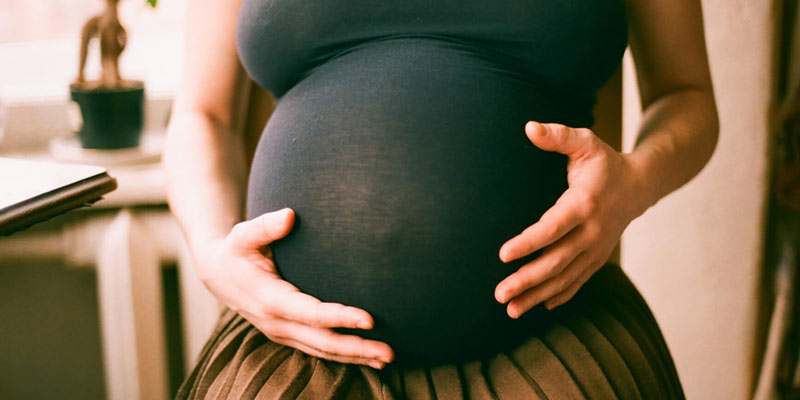It’s a question being asked more than ever before: when is the right time to have a baby? Perhaps it’s when the urge strikes and you suddenly feel “ready”. For others, it’s about getting the career and finances in order first. And then, let’s not forget those who give birth nine months after a good holiday in Bali – surprise!
With the average age of first-time mums in Australia steadily rising, mirrored by increasing rates of assisted reproduction such as as IVF, there’s no doubt that more Aussies are putting prams and pumps on the back-burner. If you are thinking of starting a family a little later in life, here are a few things to think about.

What does the science say about age and fertility?
The chance of conceiving falls for both men and women as we age and, at the same time, the likelihood of losing a pregnancy increases. And there are biological reasons for this.
Women are born with a finite number of eggs, or oocytes, within the ovary. As women grow older both the number and quality of the remaining eggs diminish. However, there is no “cliff” – rather a gradual decline.
According to one of Australia’s leading organisations on fertility, 75 per cent of 30-year-old women conceive within 12 months of trying, compared with 44 per cent of 40-year-old women. Miscarriage is also much more common
With men, the quality of sperm decreases with age. After men hit 45, it takes longer for their female partner to get pregnant. Age can decrease important hormones, decrease sperm quality and damage the sperm’s ability to move the way it needs to get to the egg, and it can even change the shape of sperm in a way that makes it more difficult to fertilise the egg. There’s also an increased risk that their partner will miscarry.
So, while having a baby in your late 30s or into your early 40s is entirely possible, it’s worth keeping in mind that it might be a little harder to conceive. And because everyone is different, there is no easy way to tell how late is too late.
Are there any other factors that affect fertility?
Age isn’t the only factor that impacts fertility. There are some things you can’t control, such as your genetics. But lifestyle factors also play a role, so staying healthy can improve your chances of having a baby naturally.
- Try to reach a healthy weight. Being either overweight or underweight can impact fertility. Talk to your doctor for support.
- Limit alcohol. Alcohol can reduce fertility in both men and women and can increase the risk of miscarriage. Too much alcohol can damage the quality of sperm, cause impotence and decrease sex drive in men. Australian guidelines recommend that women trying to get pregnant should avoid alcohol altogether.
- Get help to quit smoking. Smoking increases infertility in both men and women, and can damage sperm and increase the risk of health problems for the baby. Talk to your GP or contact Quitline® on 13 78 48 or quitnow.gov.au.
So if you are planning on putting babies off for a while, it’s a good idea to stay healthy in the meantime to maximize your chances when you are ready. Leading a balanced and healthy life won’t promise a pregnancy later in life, but it will certainly help improve your odds when you’re ready to conceive.
For others, health issues like endometriosis or fibroids may affect fertility, and their decision about when to start trying for a baby.
It’s not all about your body….
The ‘right time’ will be different for everyone. For some, finding the right partner or having the financial stability to raise a child means they will try for children later in life, or even consider freezing their eggs. For others, the most important thing is having the best chance of conceiving. Everyone is different.
Unfortunately, there is no clear answer to how long you should wait, but knowing the facts around age and fertility can help you weigh up your pros and cons, and what’s right for you.
If you’re thinking about starting a family, it’s a good idea to see your GP first, who can give you personalised information about fertility and pregnancy.
Need a little extra support?
Health Concierge
Whether it’s taking you a little longer to fall pregnant than you expected, or you know you’ll be needing a bit of extra help, Medibank’s Health Concierge service is there to help. You can call 1800 789 414 for support and guidance, available at no extra cost for members with residential hospital cover#.
Got a health question? 24/7 Medibank Nurse Support
Medibank health insurance members can speak to a registered nurse over the phone or online to discuss any health questions or concerns at no extra cost.~ Chat online or call 1800 644 325 24 hours a day, 7 days a week.
24/7 Medibank Mental Health Support
Medibank members with health insurance can talk with a mental health professional over the phone or online in relation to any mental health or emotional concern at no extra cost.~ Chat online or call 1800 644 325, 24 hours a day 7 days a week.
Optimal me
Medibank has partnered with Monash University to create OptimalMe, a research program designed to help mums-to-be optimise their health before they conceive. The program features tailored health and wellbeing tips and personal guidance on fitness and nutrition.
If you’re planning to have a baby in the next 12 months you may be eligible to take part. Find out more here
Looking for something else?
Visit Medibank Planning, Pregnancy and Parenting for a range of tools and advice to help you at every stage of your pregnancy journey.
Help the way you want it
Contact us
Call us on 134 190 to speak to a consultant. Alternatively, chat to us 24/7 online.
Self-service options
Login to MyMedibank or Download the MyMedibank App for self service options.
Find a specialist
Find a specialist or Member's choice hospital using our find a provider tool.

Things you should know
~ Some referred services may involve out of pocket costs and waiting periods may apply.
# Health Concierge is available to all eligible Medibank members who hold hospital cover. Excludes Overseas Visitor Health Cover, Working Visa Health Cover and Overseas Student Health Cover (OSHC). Some referred services may involve out of pocket costs.
While we hope you find this information helpful, please note that it is general in nature. It is not health advice, and is not tailored to meet your individual health needs. You should always consult a trusted health professional before making decisions about your health care. While we have prepared the information carefully, we can’t guarantee that it is accurate, complete or up-to-date. And while we may mention goods or services provided by others, we aren’t specifically endorsing them and can’t accept responsibility for them. For these reasons we are unable to accept responsibility for any loss that may be sustained from acting on this information (subject to applicable consumer guarantees).